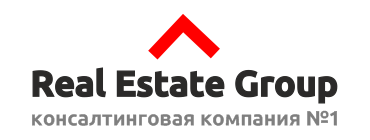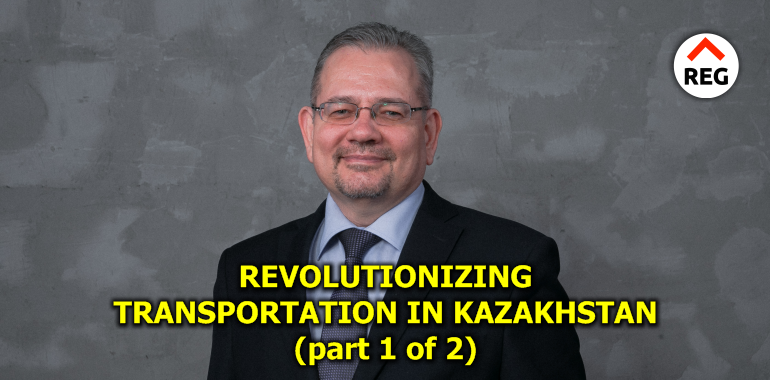Part 1: Introduction and Strategic Vision.
Abstract: In this comprehensive two-part article, Real Estate Group presents a forward-looking roadmap for modernizing Kazakhstan's transport sector, designed to propel the country into a new era of efficiency, sustainability and connectivity.
As Minister of Transport, Karabaev Marat Karimzhanovich, you are entrusted with shaping the future of the Republic of Kazakhstan, and this document provides a detailed proposal for leveraging modern digital technologies to achieve this goal.
The roadmap comprises 56 key recommendations organized into three main pillars: Infrastructure Development, Smart Mobility, and Sustainability.
1. Introduction.
1.1 Background and Context.
Kazakhstan's vast territory demands an advanced transportation system to promote economic growth, regional connectivity, and environmental sustainability.
1.2 Purpose of the Article.
This article aims to provide Minister Karabaev Marat Karimzhanovich with a comprehensive guide to harnessing modern digital technologies for the transformation of Kazakhstan's Ministry of Transport.

2. Infrastructure Development.
2.1 Expand and Modernize Road Networks
Invest in the expansion and modernization of the road infrastructure to enhance connectivity between regions, ensuring seamless transit and trade.
2.2 High-Speed Rail Development.
Introduce high-speed rail networks to connect major cities and promote sustainable, efficient transportation.
2.3 Inland Waterway Transportation.
Leverage Kazakhstan's abundant water resources to develop inland waterway transportation systems, reducing road congestion and emissions.
2.4 Port Infrastructure Upgradation.
Modernize existing ports and build new ones to boost international trade and logistics efficiency.
2.5 Air Transportation Infrastructure.
Invest in airport expansion and modernization for increased connectivity with global markets.
2.6 Multimodal Transportation Hubs.
Develop multimodal transportation hubs to seamlessly integrate various modes of transportation.
2.7 Autonomous and Electric Vehicles.
Promote research and development in autonomous and electric vehicle technologies to reduce emissions and enhance safety.
2.8 Digital Twin Infrastructure.
Implement digital twin technologies to monitor and manage critical infrastructure, ensuring safety and efficient maintenance.
2.9 Smart Toll Systems.
Introduce smart toll systems to streamline traffic flow and generate revenue for infrastructure development.
3. Smart Mobility.
3.1 Intelligent Traffic Management.
Implement AI-based traffic management systems to reduce congestion and enhance safety.
3.2 Public Transportation Modernization.
Upgrade public transportation networks with digital ticketing, real-time tracking, and eco-friendly options.
3.3 Mobility as a Service (MaaS).
Introduce MaaS platforms to offer integrated, seamless transportation options to citizens.
3.4 Ride-Sharing and Carpooling Promotion.
Encourage ride-sharing and carpooling to reduce the number of private vehicles on the road.
3.5 Bike-Sharing and Pedestrian Infrastructure.
Invest in bike-sharing programs and pedestrian-friendly infrastructure to promote sustainable mobility.
3.6 Last-Mile Delivery Solutions.
Foster innovative last-mile delivery services to reduce urban congestion.
3.7 Data-Driven Decision Making.
Leverage big data analytics for informed decision-making and efficient resource allocation.
3.8 Cybersecurity for Mobility.
Prioritize cybersecurity measures to protect critical transportation systems from cyber threats.
4. Sustainability.
4.1 Emission Reduction Initiatives.
Implement strict emissions standards and promote clean energy alternatives for a greener transportation sector.
4.2 Green Public Transportation.
Transition public transportation to electric and hydrogen-powered vehicles.
4.3 Renewable Energy Integration.
Integrate renewable energy sources into transportation infrastructure to reduce carbon footprint.
4.4 Eco-Friendly Freight Transport.
Promote eco-friendly freight transportation through incentives and regulations.
4.5 Conservation of Natural Habitats.
Implement measures to protect natural habitats during infrastructure development projects.
Part 2: Implementation and Conclusion.
5. Implementation Strategy.
5.1 Public-Private Partnerships.
Foster partnerships with private entities to fund and execute infrastructure projects.
5.2 Regulatory Framework.
Establish a clear regulatory framework to support the adoption of emerging transportation technologies.
5.3 Investment in Research and Development.
Allocate resources to research institutions and startups to drive innovation in transportation.
5.4 Capacity Building.
Invest in training programs to equip the workforce with the skills needed for modern transportation management.
5.5 International Collaboration.
Collaborate with international organizations to gain insights and share best practices.
6. Monitoring and Evaluation.
6.1 Performance Metrics.
Define key performance indicators (KPIs) to measure the success of transportation initiatives.
6.2 Data Analytics for Decision Making.
Utilize real-time data analytics to monitor progress and make data-driven decisions.
7. Conclusion.
7.1 Summary of Key Recommendations.
Recap the 56 key recommendations presented in the article.
7.2 Vision for the Future.
Paint a compelling vision of Kazakhstan's transportation sector in the next decade, emphasizing connectivity, sustainability, and economic prosperity.
8. Acknowledgments.
8.1 Acknowledgment of Stakeholders
Recognize the efforts of all stakeholders involved in shaping the transportation roadmap.
9. Call to Action.
9.1 Minister's Commitment.
Express your commitment, Minister Karabaev Marat Karimzhanovich, to the realization of this visionary roadmap for Kazakhstan's transportation sector.
9.2 Citizen Engagement.
Encourage public participation and feedback in the implementation process.
10. References.
10.1 Refer to relevant studies and reports.
Provide a complete list of references for further reading and research to your specialists.
Продолжение во 2 части
In conclusion, this visionary roadmap for the Ministry of Transport of Kazakhstan outlines a bold strategy to modernize the country's transportation sector.
Minister Karabaev Marat Karimzhanovich, by implementing these 56 recommendations, you can steer Kazakhstan towards a brighter future, characterized by efficient transportation networks, sustainability, and enhanced economic growth.
Real Estate Group collectively hopes that this article will serve as a guiding light on your journey to transform Kazakhstan's transportation environment.






